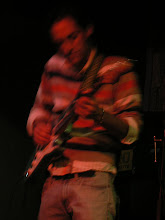
Last week, I wrote about meeting Ian Condry, the MIT profressor who authored an incredible book about the Japanese Hip-hop scene,
Hip Hop Japan: Rap and The Paths to Cultural Globalization. Yesterday, Condry had organized a panel discussion at Waseda University to promote the recent Japanese translation of the book. Sitting on the panel were the three translators of the book, Condry himself, and K Dub Shine, a hit selling artist and one of the pioneers of Japanese rap music. When it was his turn to speak, by the way he grabbed the mic, it looked as if he was about to spit some rhymes.

The panel began with each speaker talking about their background and relation to the book. After about an hour, the moderator opened the floor for questions. The audience seemed extremely engaged by the topics at hand and from what I could gather, they were really grilling the panelists with intense and thought provoking questions. "How can one define Hip-hop culture?"... "How do the racial issues in Hip-hop relate to discrimination against Koreans?"... By that point, my Japanese comprehension was failing. I raised my hand and asked the translators about which parts of the book the Japanese readership would find enlightening and which parts would they disagree with. Unfortunately, I didn't understand a word of the response.
Later at night, an after-party was scheduled at a loft bar in ever trendy Shimo-kitazawa, a hip part of town that doesn't make it into this blog enough. Condry was scheduled to make his DJ debut...




Seriously, Mr. Condry is my new idol. I had to rub my eyes a few times because I didn't believe what I saw. A middle-aged white guy with a Ph.D. in Anthropology from Yale and tenure at MIT might be the last person you would expect to see behind two turntables at an underground Japanese Hip-hop party. But there he was, doing a geeky white-boy dance, wearing an LED t-shirt, and dropping the fly-est Japanese beats that you've ever heard. The crowd of 20-something Japanese young people, including a group of trendy Japanese girls in the front row, were simply getting down!
Next up on the DJ roster was Miss Monday, one of the top selling Japanese female rap artists. When Condry did his research, she was a young and upcoming talent, but since then, she has become a huge name.

Last night, she was spinning a set of minimal techno and a electro grooves. She seemed laid back and inconspicuous, with nothing about her aura giving away her true popularity in the music world. After her set, while she was smoking a cigarette and grooving to the music on the dance floor, I worked up the guts to talk to her for a bit and tell her about the Werewolf project. I gave her my business card and she slipped it into the strap of her tank-top. It may have been the single coolest thing that has ever happened to me.
Through the course of the night, I also had a chance to chat with many of the people involved in the Japanese edition of the book including the translators and editor. They were a mix of traditional academics and hip contemporary researchers. One of the guys actually specialized in Japanese snowboarding culture. I also got to talk with Ian about his experiences writing the book and what it was like being an academic invading the streets of Japan.
He told me about how when he was younger, he would often run into middle aged guys in suits at the clubs where he was doing his fieldwork. He said he knew he was destined to be the old guy at the bar (see prior images). I told him that when he turns 64, we'll all be back here to party with him some more.
I swear though, I can't keep up with Japanese people. The last DJ was spinning funky remixes of 1980's Japanese pop songs till 6:30AM when the morning sun was shinning brightly. Ian was there going strong, drinking, dancing, schmoozing, and signing copies of his book for all his new fans.
So this one is for you Mr. Condry. Standing atop Mnt. Fuji with a full moon in the background, the Werewolf howls at you in salute!





















